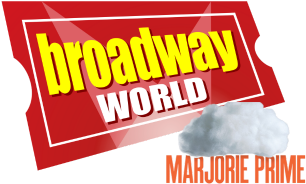EDINBURGH 2017: BWW Q&A- Dust
BWW speaks to director Sara Joyce about 2017 Edinburgh Festival Fringe show Dust.
Tell us a bit about Dust.
Dust is about Alice - a woman who has just committed suicide. She expects to be free from the sadness, anxiety and pressures that were suffocating her in life but she is still somehow connected to the body she has just abandoned - for now anyway. We follow her journey through this 'afterlife' where she is confronted with the reactions to her own death and flashbacks to the moments that steered her to make the decision to kill herself.
What was the inspiration for the play?
The brilliant writer, Milly Thomas, originally conceived the idea for a TV series and as it developed she realised she had a play. Milly has a wide-eyed wonder that makes her writing intoxicatingly curious. She plucks from her own experiences and what she sees in other people and the world around her. We've spoken a lot about depression, suicide and its consequences. What is the reality of living with depression and what does it really mean to be around those people? Is suicide really an escape?
There's mystery around any suicide - why, how, what were they going through, didn't they think about the people they'd affect? It can become an event; the spectacle, the funeral, the chain of blame, the hierarchy of grief. Milly and I are both fascinated about why this occurs and how it is in danger of perpetuating the myth of suicide as the best option of relief from life. Glorifying people in death gives them momentary legacy and immortality. In Dust, there's a tension within Alice's family and friends around the weird celebration of the fantasy of what her life might have been in order for to avoid mourning the reality of what has been lost. But is this because the fantasy of what Alice might have become is much better than the truth of who she was?
Importantly we never want to generalise the effects of depression or suicide or claim to understand the experiences of everyone. This story is about Alice. It looks at the world through her lens and is caught up in how she feels about herself, her body, her relationship with her parents and brother, her sex life and her wilted ambition to amount to anything in a world that lacks any appeal for her.
Why is it important to tell this story?
There's a recent culture of openness in being able to speak about mental health and that's a great thing, it must continue and grow. But there's an unspoken truth about depression and that is that it's boring to be around. The repeated bouts of sadness, lethargy and self-doubt are incomprehensible for anyone without a frame of reference for what it is to be depressed. By the very nature of what it is, it's almost impossible to comprehend. Suicide as an option of escape for a person in the deepest throes of feeling the worst symptoms of depression- that is just as, if not even more difficult to understand.
I hope with this story we can talk about the truthful frustration of utter lack of understanding; from the point of view of those who live with depression and may have had suicidal thoughts, and from the perspective of those around them who can't grasp why someone they know would choose not to live. Both of those positions are terrifying and lonely. With Dust we can't give any answers and we won't try to but we are starting a conversation that is too often muted because suicide is an uncomfortable thing to talk about. But it's also a terrifyingly increasing occurrence.
Who would you recommend comes to see Dust?
Anyone who has had or known anyone with depression. Anyone who has a difficult relationship with their self-image. Anyone who isn't sure about their relationship (don't tell your partner that's why you booked it). I should say too, it is funny (darkly). The play is full of people and situations we can all relate to and Milly's performances are often hilarious. Neither of us are very serious people. Our coping mechanism with anything macabre is to make a joke. So it'll definitely be on the edge. Don't bring kids.
What's next for Dust after the Fringe?
*cue crass urn toss gag or something about letting the dust settle*. The afterlife of Dust is tbc. (couldn't help it!)
Timings and ticket information for Dust are available on the edfringe website.
Photo Credit: Chloe Wicks
Videos

